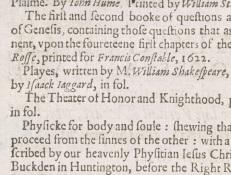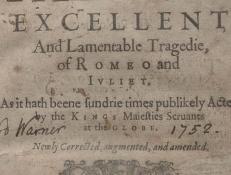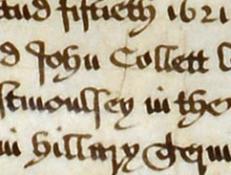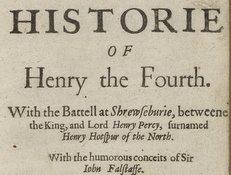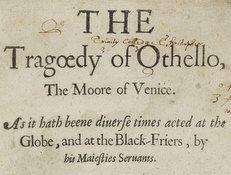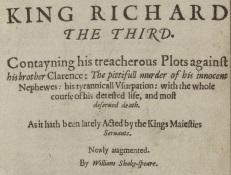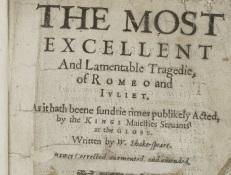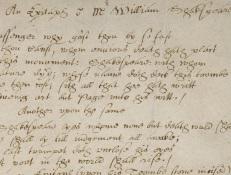To view a sortable list, please visit the Resource
All Documents
Autumn 1622
The principal book fair in Western Europe was held biannually in Frankfurt, Germany. While most books offered at the fair were in Latin, by 1618-1619 booksellers advertised books in English in printed catalogs.
ca. 1622
This the fourth edition of Romeo and Juliet. It was printed sometime around 1622 by John Windet for John Smethwicke.
February 21, 1622
Dated February 21, 1621/2, this is the fourth of five enrolled indentures of bargain and sale for the Globe site, naming William Shakespeare as a leasee. The Globe playhouse was first built in 1599 on land leased from Sir Nicholas Brend.
1622
The sixth edition of Henry IV Part 1 was one of three Shakespearean playbooks printed in 1622, the year before the first edition of his collected plays, Mr William Shakespeare's Comedies, Histories, & Tragedies, also known as “the First Folio,” was published.
1622
This is the first edition of Othello, printed in 1622, around eighteen years after it was first written and performed. It was entered into the Stationers’ Company Register on October 6, 1621 by Thomas Walkley, who then had it printed by Nicholas Okes.
1622
This is the sixth edition of Richard III, printed in 1622 for Matthew Law. However, Thomas Creede, the printer for the second through fifth editions, died in 1616 and Law turned to Thomas Purfoot to print this edition.
ca. 1622
SHAKESPEARE DOCUMENTED IS STILL GROWING! Descriptive content and transcriptions will continue to be added, updated and expanded. Check back for regular updates!
August 8, 1623
Anne, William Shakespeare’s wife, was buried on August 8, 1623, according to the Holy Trinity Church parish register. Next to the entry, an “X” added by a later hand highlights its significance.
1623
Three epitaphs to Shakespeare are copied onto the last leaf of this First Folio. The first is from Shakespeare’s monument in Holy Trinity Church.
circa 1623
In 1623, the antiquarian Sir Edward Dering turned the two parts of Henry IV into a single play, cutting 3000 lines from both. Dering’s adaptation is the earliest known manuscript copy, and first documented amateur performance of, a Shakespeare play (or rather, parts of two plays).

